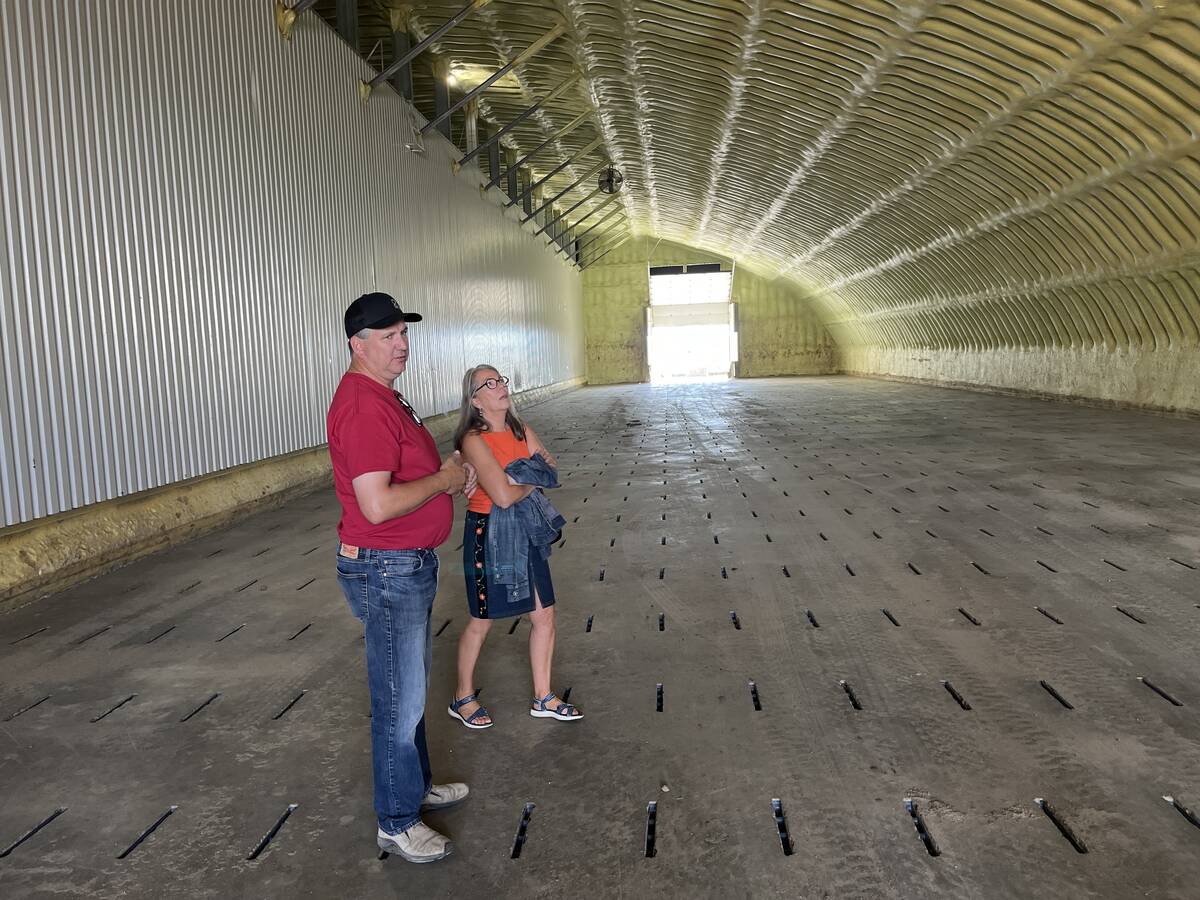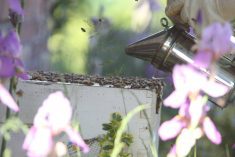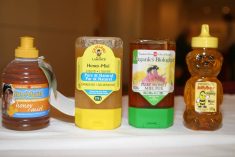MPs told CFIA should have experts on staff rather than relying on the Canadian Association of Professional Apiculturists
The past-president of the Alberta Beekeepers Commission took aim at the federal government for its failure to help the industry deal with honey bee health decline and bee mortality.
Jeremy Olthof appeared before the standing agriculture committee during its study on the environmental contribution of agriculture and said an improved regulatory system is necessary.
He said the 2013 risk assessment by the Canadian Food Inspection Agency, which retained a ban on importing packaged bees from the United States, was “based primarily on confirmation bias, not fact.”
Read Also

Potato farm requires year-round management
The most recent Open Farm Day in Alberta showcased agricultural producers across the province educating the general public about the process that is required is to get food to their table.
He said beekeepers need a regulatory agency willing to work collaboratively with the industry and “rely on first-hand knowledge rather than hearsay, acknowledge industry and their expertise and respond in a timely manner.”
He said CFIA should have experts on staff rather than relying on the Canadian Association of Professional Apiculturists, which acts as a consultant.
“CFIA should be taking a more holistic risk-benefit viewpoint that considers the realities that beekeepers are facing. Let me be clear. The issue is not CAPA as an organization, but rather CFIA’s complete reliance on them to provide industry reports and to update current risks to the industry,” Olthof said. “It is long overdue that CFIA gives the beekeeping industry the respect and time it deserves.”
He also said the Pest Management Regulatory Agency must approve new varroa mite treatments more quickly.
“As with CFIA, there’s no expertise or recognition of the importance of this industry in PMRA,” he said.
The ABC recommends Canada re-open the border, specifically with northern California, for packaged honey bees.
Ron Greidanus, also an Alberta beekeeper, said there are protocols that could mitigate any risk for package imports and CFIA should complete a new risk assessment.
He recommended a North American bee strategy.
Greidanus said Canada should move away from mass imports of bees from around the world with a slow, careful transition. He said 70,000 packages of bees will be imported this year.
British Columbia provincial apiculturist Paul van Westendorp said before the ban on U.S. package imports was implemented in 1987, winter mortality rates were about 10 percent.
“Today, we have persistent winter mortality rates of over 30 percent. That is not sustainable,” he said. “I think that we are collectively going to run into serious problems in terms of crop pollination and things of that kind.”
He said about 550,000 colonies of the 800,000 in Canada are on the Prairies.
Van Westendorp also said that eight years ago the Canadian Senate report, The Importance of Bee Health to Sustainable Food Production in Canada, recommended Health Canada and the CFIA amend the importation prohibition but nothing has happened since.
He said CFIA must revisit the issue.
During questioning, Olthof said CFIA is ineffective because it doesn’t have a bee expert, is not willing to meet with industry and is not communicating. He said that is all because of the lawsuit launched in 2014 by some beekeepers that alleged bee losses due to approved pesticides.
Other witnesses said they need better support from the federal government in risk management programs, technology transfer and research.
Jean-Francois Doyon, a Quebec beekeeper, said he lost $1.5 million last year and would have had to declare bankruptcy without provincial winter losses insurance.


















